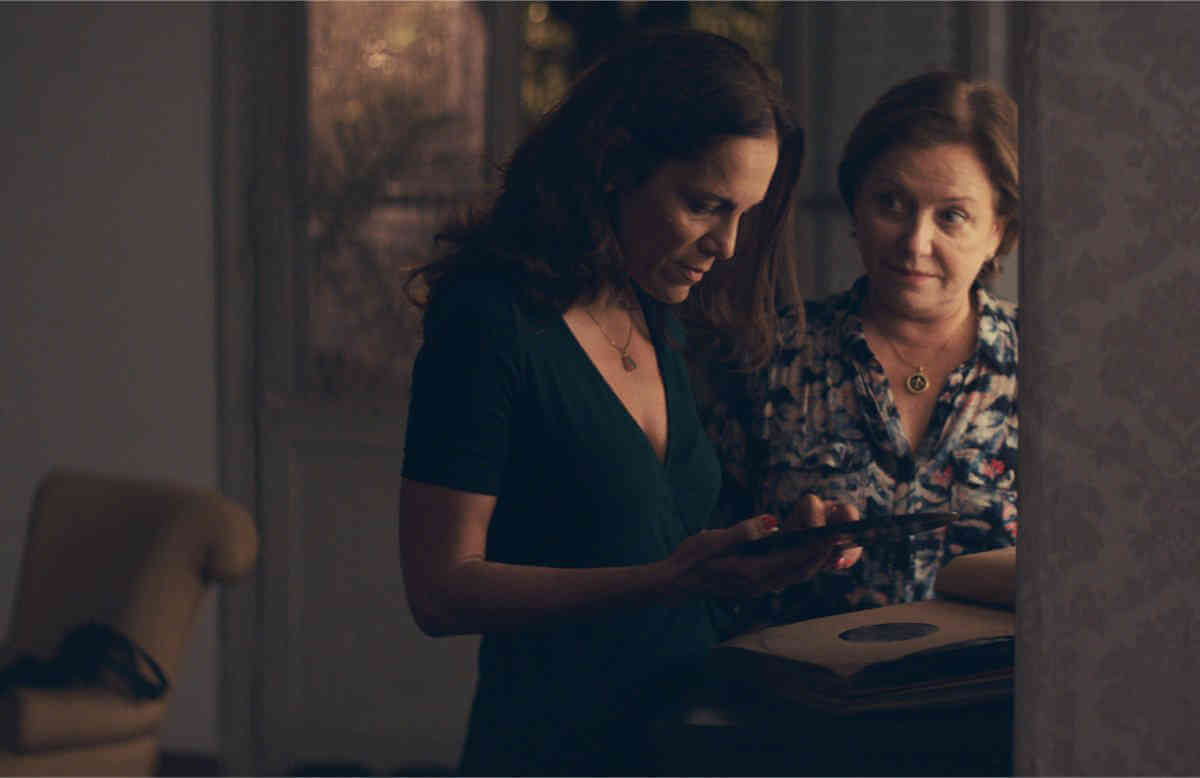“The Heiresses,” Paraguay’s official Oscar submission, is a subtle and moving character study about Chela (Ana Brun), whose lover, Chiquita (Margarita Irun), is sent to prison for bank fraud. Alone and adrift, Chela drives her neighbor Pituca (María Martins) around to card games. Eventually, she meets Angy (Ana Ivanova), a beautiful young woman who also employs Chela’s taxi service.
An outstanding film, “The Heiresses” is a long shot for the Best Foreign Language Film Oscar, but it is significant that it was selected to represent Paraguay. The largely Catholic, conservative country is very homophobic.
“It had support from President Mario Abdo Benítez and his wife, who won elections talking about family,” explained out gay writer/ director Marcelo Martinessi in a recent interview.
“Cinema can change how people think and show how beautiful diversity is,” Martinessi said. “The LGBT community in Paraguay depends on social class. We don’t have a law against discrimination, never mind marriage equality. So, the country needs to take steps forward. It’s still difficult, especially for people who can’t come out or depend on the Paraguayan community to live and survive.”
The film, Martinessi said, is about “the prison of social class, relationships, and sexuality. Chela comes from a privileged social class where everything is about not admitting things and lying to one’s self. I think Chela and Chiquita are homophobic lesbians. They grew up uncomfortable in their own skin, especially coming from a generation that was my parents’ generation. Anything out of the norm is not only not accepted but punished.”
Hiding is an important theme in “The Heiresses.” The film is not about what you see, but more about what you don’t see. The central relationship slowly comes into focus, as do other elements of the narrative. This is a deliberate and effective approach on Martinessi’s part to keep viewers engaged.
The filmmaker shoots in silhouettes and close-ups, as well as through doors and with mirrors to offer an intimate look at the characters’ lives. Martinessi also uses color and lighting in striking ways, creating a visual pall over the women’s household and a vibrancy in the prison and at Pituca’s card games.
While Chela is upset about Chiquita’s imprisonment — and tries to hide her situation — she is also depressed by having to sell off their inherited property. The title is ironic given that Chela is robbed of her lover, her valuables, and her dignity.
“For many people, they are born in a bubble when they inherit too much,” Martinessi acknowledged. “When that’s stripped away, they discover life and have different experiences.”
While the filmmaker appreciates the ironic reading of the film’s title, he sees its meaning in a different way.
“I was thinking always of heiresses who inherited money, a car, a house, but also prejudice — and that’s a key to understanding the film,” he explained. “It’s like a hereditary disease. I feel I inherited the same prejudices. The film is the opposite of trying to heal. It has to do with everything we inherit. I didn’t want to make it singular. The women playing cards are also shaped by this system. You inherit after so many years of authoritarian regime. You reproduce the protection-oppression in relationships.”
Chela’s life changes at the card game where she meets Angy and becomes enamored with her. A scene of the two women sharing a cigarette beautifully captures the moment’s seductive power.
“The Heiresses” Martinessi said, is “a coming out story of a 60-year-old woman and coming of age as well. Chela is a character who is always in the background. She is never a protagonist. She doesn’t talk much. I was interested to see what would happen inside her.
“I didn’t want guilt or pity or a prejudice around her, but I wanted this woman to develop these small emotions that are huge when they don’t come out. If she was comfortable in her own skin, she’d take money she’s offered by others, or be with Angy. That’s a strong feeling, and everything is constrained in her. I’m interested in that and how people keep everything inside. Society makes these women invisible. I had to make sure people understood — even though the information is given drop by drop.”
The film’s slow-burn rhythm is connecting with audiences. It has won multiple awards on the festival circuit and has been embraced by Paraguay’s lesbian community.
Martinessi is proud of his film’s success, which he hopes will continue in America.
“I was trying to tell a universal story through a lesbian character,” he said. “I was worried that Paraguay activists would be unhappy because the film is timid in the display of sexuality, but they understood it so well because it is how lesbians feel about their sexuality in our country. In a country like Paraguay, where we have decades without cinema, it was important to make a film like this, so I can better speak to my society.”
THE HEIRESSES | Directed by Marcelo Martinessi | In Spanish, with English subtitles | Distrib Films US | Opens Jan. 16 | Film Forum, 209 W. Houston St. | filmforum.org




































